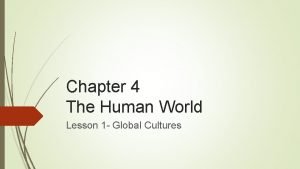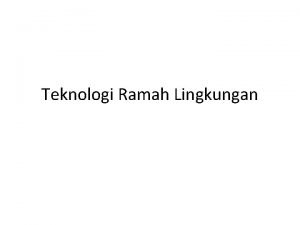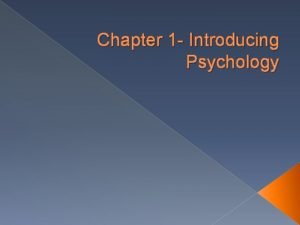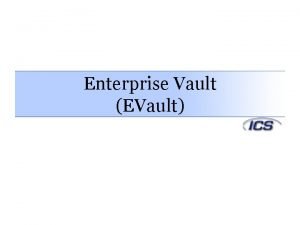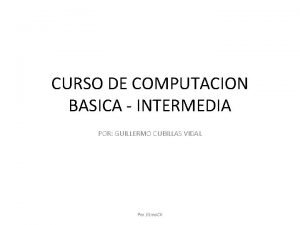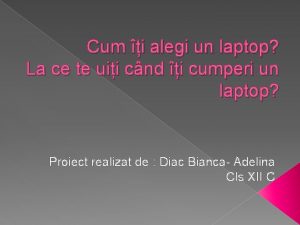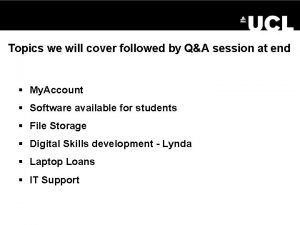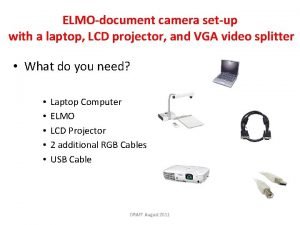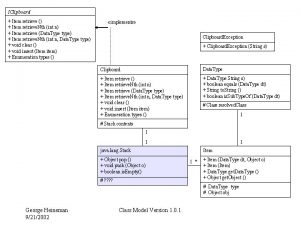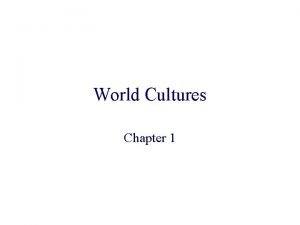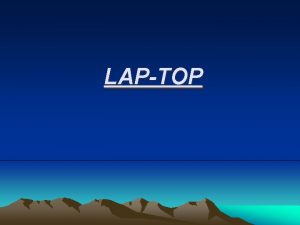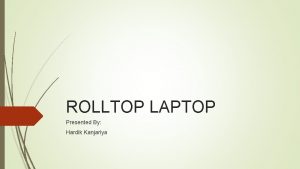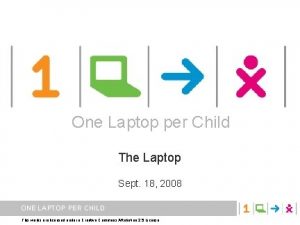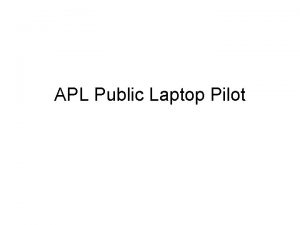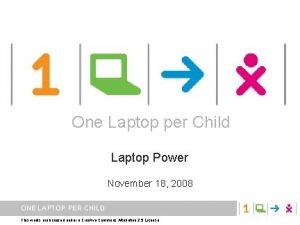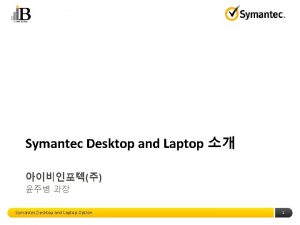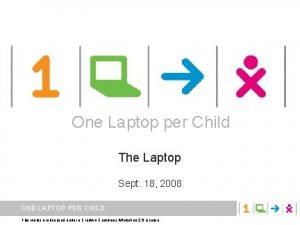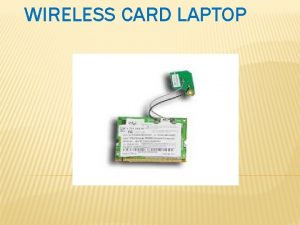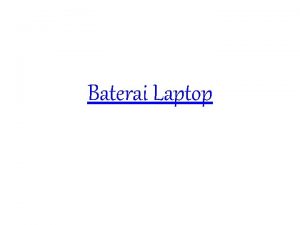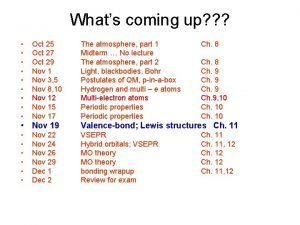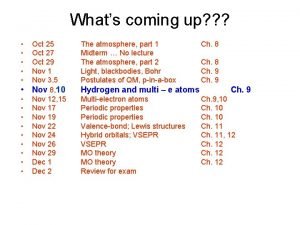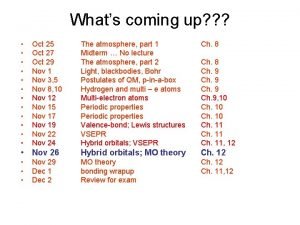World Cultures Oct 1 2014 Retrieve your laptop









![WHO SELECTS THE PRIME MINISTER [PM]? “Parliament” selects the prime minister – Prime Minister WHO SELECTS THE PRIME MINISTER [PM]? “Parliament” selects the prime minister – Prime Minister](https://slidetodoc.com/presentation_image_h2/28eccc9a26a5cce53293f706ca5d27be/image-10.jpg)











- Slides: 21

World Cultures Oct 1, 2014 Retrieve your laptop AFTER class Discussion. Today’s Class Objectives: 1. Compare the Presidential form of democracy with the Parliamentary form of democracy

Class Objective: 9 -30 -14 Compare the Democratic Presidential system of government with the Parliamentary system of government. Forms of Democratic Governments

Presidential System United States What are the 3 “branches” “branches in our government? Legislative - Make the laws. Congress : Senate House of Reps Executive - Carry out the laws make in Congress Judicial - Interpret the laws- Supreme Court “Do they follow the Constitution? ” President, his cabinet, VP, FBI, CIA, etc.

Most of the Democratic forms of government ARE NOT the same as ours! Parliamentary System of Government How is it similar to the Presidential system of democracy? How is it different?

TASK: 1. Access and read the information below which compares and contrasts the “Parliamentary” and “Presidential” system of democracies. 2. While reading, contrast the two systems with regard to the following: a) Branches of government b) Elections c) Terms in office 3. What are the advantages of each system? http: //teacher. scholastic. com/researchtools/researchstarters/presidents/ http: //www. essortment. com/all/presidentialpar_rket. htm http: //www 2. scholastic. com/browse/article. jsp? id=5122

CONSTITUTIONAL MONARCHY PARLIAMENTARY SYSTEM Head of the legislature VOTERS Majority Parliament Minority Party Who is the “Head of State”? • Britain? Prime Minister who picks his “Cabinet” Chief Executive Monarch No real power! • Other Parliamentary systems who do NOT have a monarch? “Head of State” [different named titles]

Speaker of the H of C Whigs Tories House of Commons Ancient tradition: Aisle between two parties is the width of two swordblades plus one foot. Why? “Big Wig” Official Bellower

House of Commons 9

Parliament Today HOUSE OF LORDS (Hereditary) Prime Minister No real power HOUSE OF COMMONS COMMO (Elected) • 650 Districts / 1 Rep–Each • Does not have a system of proportional representation • 2 “Major” Party System -Conservative Party - Labour Party (Head of Majority Party in House of Commons) Vote for New Members of House of Commons every 5 Years UNLESS…. . Prime Minister calls for a “vote of confidence” …. does not get it…. then he/she may call for a new election even if the 5 years is not through!
![WHO SELECTS THE PRIME MINISTER PM Parliament selects the prime minister Prime Minister WHO SELECTS THE PRIME MINISTER [PM]? “Parliament” selects the prime minister – Prime Minister](https://slidetodoc.com/presentation_image_h2/28eccc9a26a5cce53293f706ca5d27be/image-10.jpg)
WHO SELECTS THE PRIME MINISTER [PM]? “Parliament” selects the prime minister – Prime Minister is not elected by popular vote – The PM is usually the head of majority party Ø coalition • Cabinet is responsibility to Parliament – Major Legislation – “Votes of confidence”

Parliamentary and Presidential Systems • What are the Key Features of Presidential Government? • Popular election of president (electoral vote) • Fixed term • No Overlap between executive and legislative duties • What are they Key figures of Parliamentary Government? • Government comes from parliament • No fixed term • Cabinet government

Comparing Systems Branches of Government Rigidity/ Flexibility Political Style Identifiably & Accountability Presidentialism Parliamentarian 3 2 Fixed Term Flexible Terms President has independent power PM’s power depends on party Voter’s choices are clear Choices are less clear to voter

Comparing Systems Presidential Branches of Government Rigidity/ Flexibility Political Style Identifiably & Accountability Parliamentary

What are the advantages of each system? If you had to recommend either a “presidential” or a “parliamentary system for a new democracy, which would you select and why?

What about EU nations who do hereditary kings or queens? France not have • has a “President” President elected the same way that UK elects their Prime Minister • He/she then appoints the nation’s “Prime Minister” Minister Ø whose job is directed by the elected President Ø considered the “Head of State”, but not the “Head of Government”

Other European/world democracies who follow the Parliamentary System may use a different term other than “Parliament for their legislature Examples – France: France Israel: Israel Japan: Japan Spain: General Assembly Knesset Diet Cortes Generales

Can a Democratic Government also be “Socialist”? Socialist YES! Ø Socialism is NOT a form of government Socialism - is an “economic system”

Democratic Socialism – • When the government regulates some aspects of the economy in some fashion. • But it is “democratic” b/c the nation’s vote people “ ” for the party who advocate this regulation. v Health Care for all v Free education K-college v Gov’t control of all major industries

If Socialism - is an “economic system”…. What name is given to a GOV’T that is Socialist elected? but IS NOT democratically COMMUNIST? Authoritarian Government Command • Dictatorship Economy • Military junta • Oligarchy

Recap: Forms of Governmental Systems: Systems Ø Democratic • Presidential System • Parliamentary System Ø Authoritarian • Dictatorship • Military Junta Forms of Economic Systems: Ø Free market Pure Capitalism Ø Mixed market Some Capitalism and some Socialism Ø Command Where would we put “SOCIALISM”?

How well do you understand the forms of democratic governments? TASK: Working in pairs, you will create a “Tavani-like quiz” with 6 questions: • • • Three [3] multiple chose questions Three [3] completion questions One short answer per topic Must be typed on Word Must have correct answers to each question Each student must upload their completed document ON THE BOTTOM of their subpage on “Comparing Democratic Systems of Government”
 Organizational cultures often reflect national cultures
Organizational cultures often reflect national cultures Lesson 1 global cultures
Lesson 1 global cultures Tujuan teknologi ramah lingkungan
Tujuan teknologi ramah lingkungan 5 year old tammy mistakenly believes
5 year old tammy mistakenly believes Reading vipers retrieve
Reading vipers retrieve Viper vocabulary
Viper vocabulary Structuralism vs functionalism psychology
Structuralism vs functionalism psychology Enterprise vault icon
Enterprise vault icon Retrieve
Retrieve Laptop educacional - tipo i - educação conectada
Laptop educacional - tipo i - educação conectada Computacion intermedia
Computacion intermedia Cum alegi un laptop
Cum alegi un laptop Clemson laptop
Clemson laptop Inside laptop
Inside laptop Uclisd
Uclisd Laptop secure storage
Laptop secure storage Laptop pedagógusoknak
Laptop pedagógusoknak Great learning app download for laptop
Great learning app download for laptop Formatear sony vaio desde usb
Formatear sony vaio desde usb How to connect elmo to laptop
How to connect elmo to laptop Potatoplural
Potatoplural Webex manual
Webex manual

